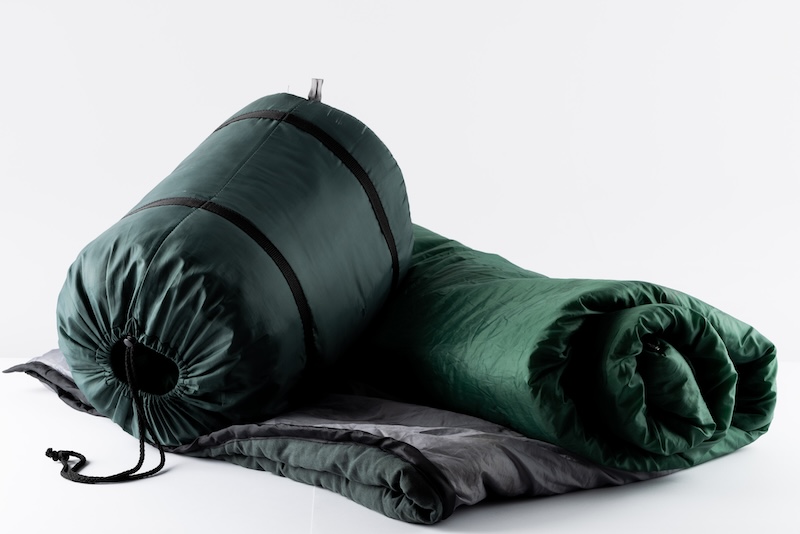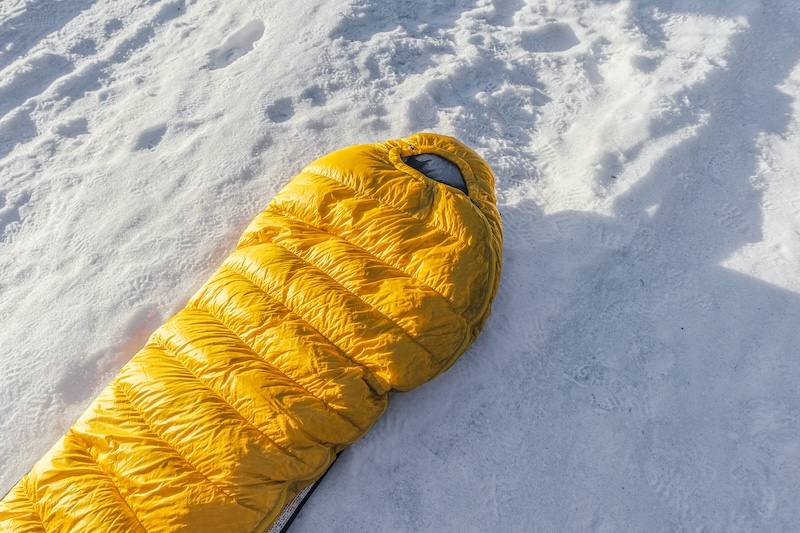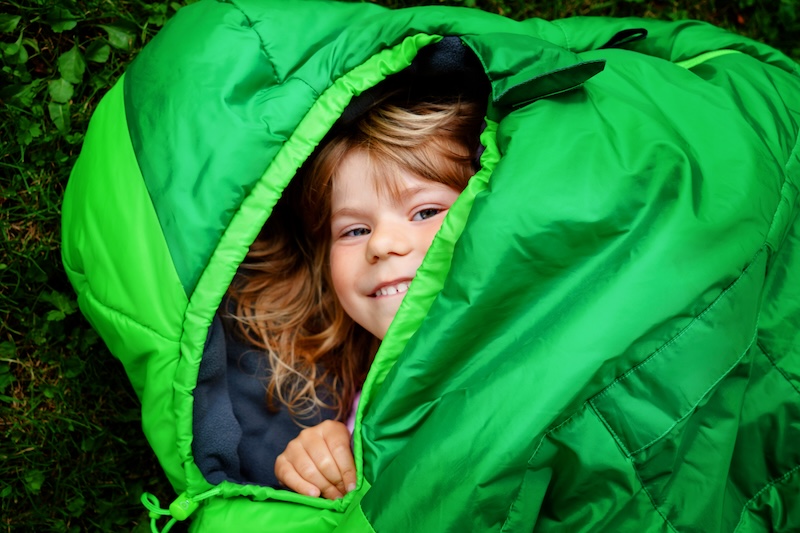
Your RV can take you far and wide, but sometimes, a traditional camping trip is what the doctor ordered. While RV camping comes with many of the comforts of home, such as a bed, bathroom, and kitchen, tent camping is a completely different ballgame. Your sleeping bag is a valuable tool for tent camping, and it can make the difference between a comfortable night snoozing and one spent shivering. Here’s how to pick the best one for your needs.
Temperature Ratings
Sleeping bags come with temperature ratings, which are a vital part of choosing the right product. Summer sleeping bags are designed to keep the camper comfortable without overheating, though they are only usually rated down to 30 degrees Fahrenheit. Some winter bags are rated for zero degrees and are only really appropriate for legitimate cold-weather camping. Some manufacturers offer three-season bags, which can be rated for temperatures as low as 15 degrees.

Types of Sleeping Bags
There are generally two types of sleeping bags: Backpacking and car or RV camping. Backpacking bags are lighter and able to be packed into a smaller space, making them better for hiking campers. The RV bags are larger and more spacious and can be significantly less expensive. That said, they are bulkier and harder to pack. Bags come in a range of shapes, including rectangle, semi-rectangle, mummy, and double-sized. Semi-rectangle and mummy sleeping bags offer head coverage for extra warmth, with the mummy bags providing the best body coverage.
Insulation Types
Sleeping bag manufacturers may use natural material (like down) or synthetic insulation. Down is lightweight and tends to last a long time. It also packs easier and offers good warmth in cold weather. However, some people are allergic to down, making synthetic insulation a better choice. It’s cheaper and offers better warmth when wet. It’s also non-allergenic, and most synthetic materials dry faster than down.

Budget
A sleeping bag is only a good choice if you can afford it. Remember that the larger RV/car camping sleeping bags are usually cheaper, but they won’t be the best option if you’re hiking or need to pack items in a small space. That said, they could be a good option if you’re planning to pitch a tent next to your vehicle and stay at an established campsite. Backpacking bags are better for “off-road” camping, but top brands can cost hundreds of dollars. The extra cost is worth the additional warmth and protection in many situations, however, so it’s important to weigh your needs and think about how you’ll use the sleeping bag before settling.
If you want to learn more about the best camping equipment for your next adventure, the crew at Valley RV should be your first call. We’d be happy to walk through some of the best sleeping bag options and can help you equip your RV or trailer for the best time possible.

